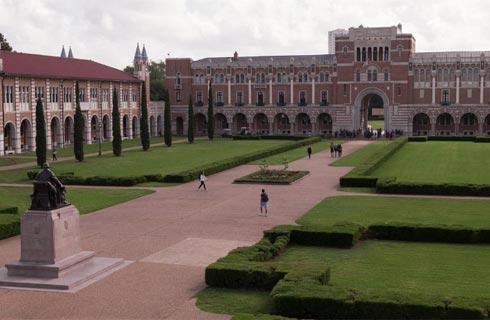授予神经科学理学士学位-士嘉堡
Honours Bachelor of Science in Neuroscience - Scarborough

学历文凭
Bachelor Degree with Honours

专业院系
Department of Psychology

开学时间

课程时长

课程学费

国际学生入学条件
IDP—雅思考试联合主办方

雅思考试总分
6.5
- 雅思总分:6.5
- 托福网考总分:89
- 托福笔试总分:160
- 其他语言考试:Pearson Test of English (PTE) Academic - Overall score of 65 with no part below 60.
CRICOS代码:
申请截止日期: 请与IDP联系 以获取详细信息。
课程简介
Neuroscience is a highly interdisciplinary scientific field of study that offers insight into the structure and function of the brain and the nervous system. Our nervous system is responsible for an enormous range of tasks, from regulating essential body functions such as breathing and digestion to producing our thoughts, emotions, and behaviours. Neuroscientists are interested in understanding the normal development and activity of the nervous system, as well as what happens under atypical circumstances such as neurological injury (e.g., stroke, brain injury), neurodegenerative diseases (e.g., Alzheimer’s, Parkinson’s disease), neuropsychiatric disorders (e.g., addiction, schizophrenia, depression) and neurodevelopmental disorders (e.g., autism). Applied neuroscience research has the potential to produce evidence-based strategies for the diagnosis and treatment of nervous system disorders.Neuroscience education can be a powerful tool for many future endeavours. Given the interdisciplinary nature of neuroscience, students interested in pursuing research-focused graduate programs may have a variety of viable options (e.g., Ph.D. in Neuroscience, Psychology, or Biology). A neuroscience background is also valuable for a range of applied professional programs (e.g., Master’s Degree in Physiotherapy, Occupational Therapy, Public Health), including medical school. Undergraduate education in neuroscience can also lead to a variety of direct-entry careers (e.g., research technician, data analyst, pharmaceutical sales).A program in Neuroscience pairs well with many other courses and programs here at UTSC. A few of the most common double major pairings with Neuroscience include Psychology, Mental Health Studies, and Human Biology. While these are the most common pairings, there are many other options that are highly complementary to training in neuroscience (e.g., Computer Science, Population Health, and Molecular Biology, Immunology and Disease), and we encourage students to explore and identify the combinations that are most consistent with their interests.
相关申请
 预科
预科 奖学金
奖学金 实习机会
实习机会 在校学习
在校学习 跨境学习
跨境学习 校园授课-线上开始
校园授课-线上开始 在线/远程学习
在线/远程学习
开学时间&学费
学费信息仅供参考,请与IDP联系以获取详细信息
| 开学时间 | 时长 | 学费 | 地点 |
|---|
学校排名

世界排名21
数据源:
泰晤士高等教育世界大学排名
关于多伦多大学

多伦多大学(University of Toronto),始建于1827年,坐落在加拿大的第一大城市多伦多,是加拿大的一所顶尖学府,亦为加拿大传统四大校之一。安大略省政府及议会环绕在市中心的女王公园四周,现已发展成为一所“一主两翼”格局的世界知名研究性大学--坐落于市中心的圣乔治校区(St. George),历史最为悠久,与3个更小的大学联盟并有享有七大学院制,与十座教学医院有着密切关系;东西向延伸至世嘉堡与密西沙加,UTSC有着乡村般的风光,风景别致,搭乘TTC一小时路程;UTM则是在西边,有校车往返。在学术及研究方面,多伦多大学一直处于领先地位。其经费、捐款、国家教授奖项、研究出版规模和藏书量皆为加拿大之首。多伦多大学出版社在加拿大乃至全北美影响深远。实行独立书院制的学府,荣获诺贝尔奖的教授人数是加拿大最多的。维多利亚学院是其最富有的学院之一 提供更多奖学金和相关设施。多伦多大学亦为美国大学协会中仅有的两所非美国学府之一。多伦多大学每年发表的科研论文数量在北美仅次于哈佛大学,引用数量位居世界前五。主要贡献:干细胞及胰岛素的发现,电子起搏器、多点触摸技术、电子显微镜、抗荷服的发明和发展,NP完全理论,以及发现首个经核证的黑洞。
本校相关课程
其他相关课程

心理学哲学博士-认知神经科学
 滑铁卢大学
滑铁卢大学学历文凭
Ph.D.
开学日期
课程费用总额


行为神经科学理学学士
 劳伦森大学
劳伦森大学学历文凭
Bachelor Degree with Honours
开学日期
课程费用总额


心理学和神经科学哲学博士
 达尔豪斯大学
达尔豪斯大学学历文凭
Ph.D.
开学日期
课程费用总额


神经科学理学学士
 达尔豪斯大学
达尔豪斯大学学历文凭
Bachelor Degree
开学日期
课程费用总额


神经科学理学硕士
 渥太华大学
渥太华大学泰晤士高等教育世界大学排名:188
学历文凭
Masters Degree
开学日期
课程费用总额


神经科学哲学博士
 渥太华大学
渥太华大学泰晤士高等教育世界大学排名:188
学历文凭
Ph.D.
开学日期
课程费用总额
















